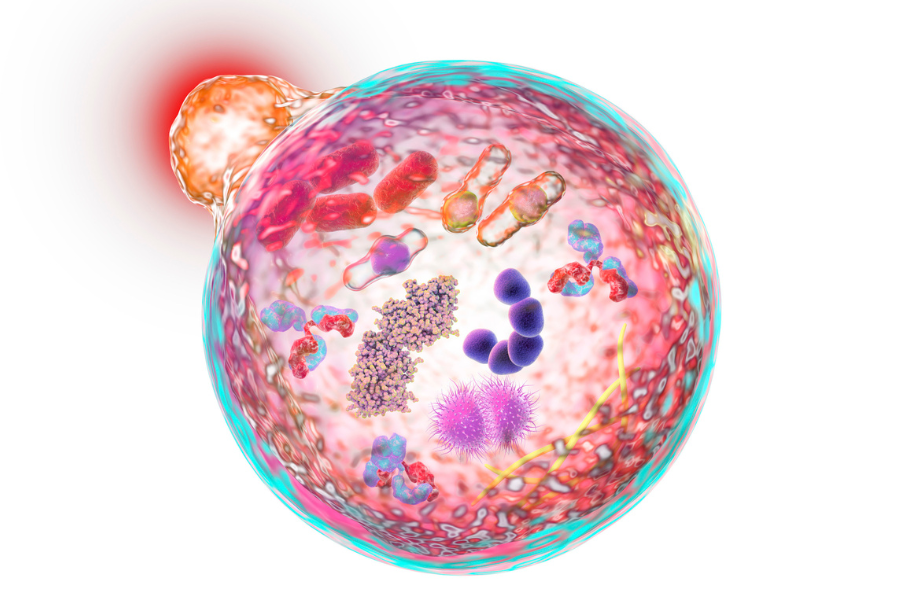Living a long and healthy life is a universal goal, and with advancements in healthcare, human life expectancy has notably risen. However, longevity doesn’t always guarantee good health. That’s when compounds like spermidine come into play.
It’s a compound naturally present in various foods like soybeans, mushrooms, and whole grains. Interestingly, research indicates that spermidine offers a range of health benefits. Studies suggest that it could help protect against age-related conditions such as heart disease and dementia. Moreover, spermidine may support autophagy, a process where the body removes damaged cells and promotes the growth of healthy ones. Additionally, spermidine has been linked to improvements in memory, cognitive function, and liver health. Given these potential advantages, spermidine is gaining attention as a natural health supplement. But can it promote both longevity and vitality? Let’s find out.
What Is Spermidine
Spermidine, classified as a polyamine due to its multiple primary amino groups, is naturally present and widely distributed in ribosomes and living tissues. It plays a crucial role in cellular function and survival.
Discovered by Dutch scientist Anton Van Leeuwenhoek in 1678 in human semen, spermidine was subsequently identified in human sperm. Within the body, spermidine is synthesized from its precursor, putrescine, and serves as a precursor for another polyamine called spermine, which also holds significance in cellular function.
Spermidine and putrescine are recognized for their role in stimulating autophagy, a process responsible for breaking down cellular waste and recycling cellular components. This mechanism acts as quality control for mitochondria, the cell’s energy producers, by facilitating the disposal of damaged or defective mitochondria. The regulation of mitochondrial disposal is tightly controlled.
Polyamines, including spermidine, possess the ability to bind to various molecules, making them highly versatile. They contribute to processes such as cellular growth, DNA stability, cellular proliferation, and apoptosis. Moreover, polyamines are implicated in functions resembling growth factors during cell division, underscoring the importance of putrescine and spermidine in promoting healthy tissue growth and function.
How Does Spermidine Work
Spermidine plays a crucial role in the anti-aging process primarily by regulating autophagy, the cell’s mechanism for removing damaged cellular components. As we age, this ability naturally declines, but supplementation with spermidine has been found to boost autophagy in liver, heart, and muscle tissues, potentially extending the lifespan of these cells.
Moreover, excessive inflammation exacerbates the aging process and contributes to the development of age-related diseases. Spermidine counteracts inflammation by scavenging reactive oxygen species, reducing the migration of immune cells into tissues, and curbing the production of pro-inflammatory molecules. By dampening inflammation, spermidine helps prevent age-related ailments.
Spermidine deficiency can impede cell growth and differentiation, leading to a decline in cellular function. Additionally, spermidine guards against cell death, contributing to the regulation of the cellular lifecycle and enhancing cell lifespan.
Furthermore, spermidine inhibits histone acetylation and maintains normal lipid metabolism, while also shielding cellular DNA from oxidative damage. Collectively, these actions of spermidine synergize to promote longevity and support overall health.
Benefits of Spermidine
Longevity
Cellular rejuvenation, longevity, and anti-aging effects are the primary factors driving the recent spotlight on spermidine. With the increasing popularity of spermidine supplements, there’s a growing demand for this compound, driven by our collective desire for improved health span and lifespan.
Interestingly, scientists have long recognized the importance of polyamines in cellular metabolism. However, it’s only been recently discovered that spermidine levels decline with age, unveiling a new frontier in the quest for longevity and health enhancement.
Numerous animal and human studies indicate that spermidine plays a significant role in delaying aging and age-related diseases. For instance, research published in the American Journal of Clinical Nutrition reveals that a diet rich in spermidine substantially enhances longevity and reduces mortality rates.
Despite these findings, the exact mechanism of spermidine’s action remains to be fully elucidated. However, most research points to autophagy as a key player. For example, a 2018 study suggests that spermidine extends lifespan by promoting autophagy and may be comparable in efficacy to rapamycin, an FDA-approved immunosuppressant known for its potent autophagy-stimulating properties. Before delving into spermidine’s role in autophagy, let’s first understand the significance of autophagy in longevity.
Autophagy
Autophagy, derived from the Latin term for “self-eating,” is a natural process in which the body cleanses damaged cells by essentially devouring them. This mechanism, familiar to those who practice intermittent fasting, typically initiates after about 16 hours of fasting. During autophagy, cells break down their old or damaged components, recycling them for cellular repair or to generate new cells. Essentially, autophagy represents the body’s way of recycling worn-out or impaired components for reuse.
However, as we age, research suggests that the rate of autophagy declines, resulting in a buildup of damaged and aging cells. This failure of the recycling process has been associated with various age-related conditions, including neurodegenerative diseases, infections, and numerous autoimmune disorders. Conversely, while deficiencies in autophagy can accelerate aging, evidence indicates that promoting this process can enhance health and contribute to longevity.
Cardiovascular Health
Studies conducted on mice have shown that spermidine promotes autophagy and preserves heart function, exhibiting cardioprotective properties. Additionally, research indicates that spermidine and spermine influence various proteins and metabolites involved in immune responses, blood coagulation, lipid metabolism, and antioxidant pathways.
Moreover, spermidine supplementation has demonstrated benefits in enhancing heart cell viability, reducing cell death, minimizing infarction size, and improving heart function in mice with recent heart attacks. Encouraged by these findings, researchers have initiated human trials to explore the potential cardioprotective effects of spermidine further.
Cognitive Benefits
Research suggests that spermidine plays a crucial role in combating brain aging by enhancing autophagy and mitochondrial function. For instance, a 2020 laboratory study demonstrated that spermidine and spermine contribute to anti-aging effects by improving autophagy and mitochondrial function.
Additionally, spermidine has shown promise in preventing memory loss in animal models of Alzheimer’s disease and enhancing behavioral performance, such as locomotor capacity, in models of Parkinson’s disease through mitophagy, a form of autophagy. Additionally, spermidine has been found to delay accelerated aging by enhancing DNA repair mechanisms.
Inflammation
A 2012 study published in the Journal of Biomedical Science suggests that spermidine possesses anti-inflammatory properties by inhibiting key pathways involved in inflammation, such as the nuclear factor kappa B (NF-κB) and MAP kinases (MAPKs) signaling pathways.
Moreover, findings from a 2017 laboratory model demonstrate that spermidine exhibits antioxidant properties, effectively shielding against oxidative stress by reducing the intracellular buildup of reactive oxygen species. Reactive oxygen species are harmful free radicals implicated in chronic inflammation seen in conditions like rheumatoid arthritis, ischemic heart disease, and various lung, kidney, and liver pathologies.
Is Spermidine Safe?
Spermidine is a compound naturally present in the body and commonly found in various foods. Research indicates that supplementing with spermidine through dietary sources or supplements is generally safe and well-tolerated. Foods that are high in spermidine include:
- Chicken
- Wheat
- Broccoli
- Cauliflower
- Mushrooms
- Peas
- Mangos
- Soy
To date, there have been no reported adverse side effects associated with spermidine supplementation. Numerous studies have been conducted to assess its safety profile, with results consistently showing favorable tolerance. However, you should always consult a healthcare professional before adding any new supplement to your regimen.
Conclusion
Spermidine is a promising compound with potential implications for promoting both longevity and vitality. One of the key mechanisms through which spermidine exerts its effects is by stimulating autophagy, the process responsible for removing damaged cells and promoting the growth of healthy ones. By enhancing autophagy, spermidine may help delay aging and age-related diseases, contributing to overall longevity.
Moreover, spermidine demonstrates anti-inflammatory properties, scavenging reactive oxygen species and reducing inflammation, which can further support health and well-being. Its potential benefits extend to cardiovascular health, cognitive function, and mitigating inflammation-related conditions.
FAQ
What’s the Recommended Daily Dosage of Spermidine?
The European Union’s Food Safety Authority advises against exceeding a daily intake of 6 mg of spermidine. Unfortunately, FDA has not issued specific guidelines regarding the recommended or maximum dosage yet.
Does Spermidine Increase Testosterone?
There isn’t enough scientific evidence to definitively conclude that spermidine increases testosterone levels.
Is Spermidine Good for Liver?
Emerging research suggests that spermidine may have potential benefits for liver health. Some studies indicate that spermidine could help protect the liver from damage and support its function.
When Should You Take Spermidine?
Some people choose to take it with meals to enhance absorption, while others prefer taking it on an empty stomach. For best results take Spermidine once a day with a meal, make sure to take it consistently at the same time of the day.
Get Started, Book a Free Consultation
Book a free 20-minute consultation to learn more about how this peptide can help you.



